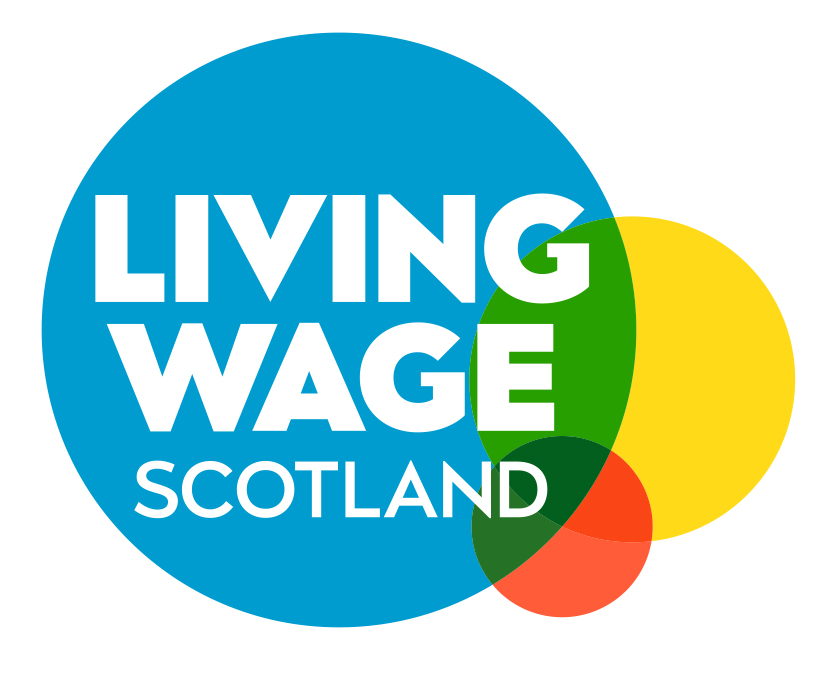By Iain Russell, Living Wage Scotland Accreditation Officer
The case for NHS Boards in Scotland to accredit as Living Wage employers is compelling. The real Living Wage is calculated according to what employees and their families need to live and improves quality of life.
This has become even more urgent as the COVID-19 pandemic exposes and exacerbates inequalities affecting our lowest earners. This includes in-work poverty and rising health inequalities.
A recent report confirms that people already suffering disadvantage are being hardest hit. The pandemic is impacting disproportionately on people in poverty, low-paid workers, children and young people, older people, disabled people, minority ethnic groups, and women. Lower earners have seen steeper falls in income as a result of the pandemic and a range of evidence suggests income inequalities are widening1.
Pre-COVID, 60% of working-age adults lived in poverty and 65% of children in poverty lived in a household where someone is in employment2.
In Scotland, the latest figures show that 15.2% of the workforce still earn below the real Living Wage. That’s 350,000 workers3. While there has been steady progress on this over the years, too many workers in Scotland don’t have enough to cover their everyday needs.
During Living Wage Week in 2020, Gerry McCartney, Head of the Scottish Public Health Observatory (ScotPHO), wrote an article for Living Wage Scotland linking poverty and health inequalities, and recommended payment of the real Living Wage4.
Poverty and Health Inequalities data show that improvement in life expectancy and mortality has become substantially slower and that life expectancy is falling. This development is described as almost without precedent and requires urgent action.
The Scottish Public Health Observatory highlights that, “the slowdown in life expectancy improvement has affected those of us living in the most deprived Scottish areas, exacerbating the already very wide health inequalities. Mortality rates are now increasing in the most deprived fifth of Scottish areas”5.
Tackling health inequalities and their determinants, such as poverty, features prominently in the Scottish Government’s current Programme for Government, and the narrowing of economic inequality (a fundamental cause of health inequality) is one of two ‘key pillars’ in the Government’s current economic strategy6.
Living Wage accreditation is entirely consistent with and supports numerous NHS Board objectives, including working with Local Authorities to reduce child poverty. As part of the Child Poverty (Scotland) Act 2017, Local Authorities and NHS Boards must jointly report annually on their activity to reduce child poverty7.
As public sector bodies in Scotland, NHS Boards must adopt Fair Work practice in their relevant procurement processes, referring to Statutory Guidance and Best Practice to understand how to consider fair pay for workers, including payment of the real Living Wage8.
Directly employed NHS staff in Scotland are already paid at least the real Living Wage through national pay bargaining; however, accrediting as Living Wage employers would extend this commitment to regular third-party contracted workers servicing NHS Board contracts across Scotland, based on the application of Fair Work criteria.
As anchor institutions in their respective regions, NHS Board influence and leverage over local economies has the potential to reach far beyond the organisations’ pay and procurement policies, encouraging more local employers to commit to supporting their staff with a rate of pay based on the cost of living.
Evidence is building that payment of the real Living Wage is not just ‘the right thing to do’ for low paid workers, but it can also help create more inclusive local economies and deliver additional annual economic growth.
A Smith Institute report, The Local Living Wage Dividend, provides evidence that points towards greater productivity, increased local spending, higher tax revenues, benefits savings, and reduced pressure on public services9.
The report encourages anchor institutions to work in partnership alongside other key employers synonymous with the local area to expand the take-up of the real Living Wage, stating that increasing the number of accredited Living Wage employers should be integral to local economic development strategies.
The number of local Living Wage accreditations and the corresponding number of low paid workers benefitting from an increase to the real Living Wage can be measures of economic improvement and a positive step towards reducing inequalities.
Living Wage Places recognition uses a place-based approach to uplift low-paid workers to the real Living Wage, providing an opportunity for accredited employers to play a role in addressing low pay in the places they operate and to work in partnership to tackle low pay10.
NHS Board commitment to Living Wage accreditation and a willingness to work with other local employers can drive inclusive growth beyond their organisation, positively impact local economies, and help address inequalities within their communities.
Now is the time for all NHS Boards in Scotland to support an economic recovery based on the principles of Fair Work and add their voice to the growing Living Wage movement by accrediting as Living Wage employers.

